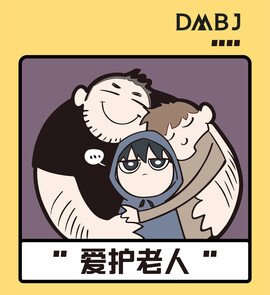
Minority Misrepresentation
After viewing the picture, I wanted to read the original source. Surprisingly, the film conveyed a very complete picture in 2 hours. Yes, this is a movie, even though the script contains a plausible life of a schoolboy who is mired in a feeling of emptiness, despite the slight fabulousness, in life there are miracles when in a year you can become someone.The picture is of high quality in technical design: paints, light, color, angle, special effects, sound design.
Psychological side: the theme of emptiness in the human personality, hiding oneself in the box of a socially useful/pleasing personality. Lack of confidence in your abilities due to various circumstances.
Accepting yourself and your personality in the environment....
All this, to some extent, the hero is restoring a picture called “I”, but I don’t think that the process has a final version.
I really liked this whole part and I’m ready to re-watch it for this BUT!
I don't know if this is a feature of Japanese cinema or what, but the representation of minorities here is grossly flawed.
First, the main character deadname a transgender person. The heroine clearly identifies herself as a woman, so the “otomen” version is excluded by itself, secondly, in the original source she also positions herself as a woman. But then the manga and the film begin to have problems.
I started looking for an interview, although she did not go into detail, but the mangaka seemed to have outdated wording of descriptions and understanding of the “phases” of transgender people, rather, at what age does awareness begin in connection with modern access to information. The heroine is not a child and clearly distinguishes herself based on this.
I could not understand why throughout the entire film she did not directly express to the hero that she did not like it when he deadnamed her. Moreover, they already had a dispute about psychological constraint. The characters had quite a few opportunities to discuss this issue, but it was neither made nor corrected in the film.
What is even more highlighted in the film is that the hero and she, like twins, almost seem to go through the question of establishing themselves as individuals in a social environment, with the struggle to do what makes them alive. Her drama was even very intensified by the moment when she could no longer follow the path that her beloved grandmother had chosen for her, but not she. And in a strong scene where the hero and she reveal their soulmate to each other, the hero deadname her.
Reading the reviews, I realized that such mistakes in films, when it is clearly visible that the creators did not even bother to clearly find out from the representatives of the minority themselves whether they are representing them correctly, misinform the audience. And without understanding anything on the topic, they mix their personal views or rumors with labels and partial lies about minorities, confusing the viewer.
Which is why some argue that this is an otomen, while others explain that this is a transperson. After all, the author herself and the filmmakers mixed all these concepts in one. When she communicates with the hero, otomen. When she introduces herself as a woman, she is already a transperson.
In my opinion, if cinema today has decided to use the most vulnerable part of the planet’s population for the sake of highlighting drama, then this cinema should, at least for the sake of respect, consult on the correctness of representation. And not to imagine how they heard from third parties, analyzing such a sensitive issue through their heteroconsciousness.
Was this review helpful to you?

Kiyoi is beginning to feel better and better where his love is failing, he is still moving intuitively, without the necessary education, but with a pure desire to keep Hira as he is. In his case, in fact, it is exhausting; in principle, this breakdown was shown. It is clear that the young man understands, perhaps not literally, that this is the nature of Hira and it cannot be fixed, like some kind of disease, but can only be somehow adapted.
The theme of toxicity towards them disappeared for me after episode 4 of the first season. Yes, such couples need a psychiatrist, they need education on the topic. But only so that one does not change uncomfortably for his nervous system “for the sake of love,” and the second does not drown in exhaustion from the fact that he has to be a constantly show flexibility of mind. But their love, their thirst for each other, it is not sick or toxic, it is honest and passionate. This can be "terrifying" and envious.
I just believe in them because I see that both want to be understandable to each other, without demanding excessive and urgent changes for the sake of love.
I believe that there is no right love, relationships are needed not healthy as in books, but harmonious and not killing the personality.
Was this review helpful to you?

Not everything is what it seems.
As always, a deceptive project, not what it seems in the first episodes.I advise you to discard the theory of toxic relationships and pay attention to the details; not everything that is presented is what it seems. With one hero after episode 4, the viewer is made to understand this. At first we hate him and then...
Complex personalities, young people with no relationship experience but so hungry for love, and in principle, if we put aside the misunderstanding due to the neurodiversity of one of the characters, they give each other the love they want.
Was this review helpful to you?

Coding neurodiversity
One of the most beautiful and complete works about a neurodiversity hero and his love. How difficult it is to always achieve understanding, and how long it takes to achieve this.Many viewers considered this relationship toxic, but in my opinion this is not a correct interpretation of what is happening.
We look at a neurodivergent person through the eyes of a young man who is completely unaware of the specifics of psychiatry and acts purely on instinct.
Thus, he makes mistakes, hurtful words come out of his mouth, and he also has to be a diplomat in these relationships. A young person, uneducated in the matter, wants to love with “ordinary” love, not realizing that they already have it simply with a peculiarity.
Lately, I have watched quite a few Japanese films, and I noticed that if there are neurodivergent people in them, apparently it is customary not to advertise, on the one hand, they don’t make a big deal out of it, but on the other hand, neurodivergent people are stuck in a vacuum of misunderstanding as some kind of piquant image for the plot.
So something like coding neurodiversity happens. Therefore, I ask you viewers to pay attention to the details, and that in fact the hero is not deceiving the viewer, he sincerely considers himself an alien, not only because of the trauma of bullying and fear, but also because in fact he has felt this way since birth.
Was this review helpful to you?






